Guli Francis-Dehqani, the first bishop for housing, takes up her post in April. With the Church of England publishing a detailed report into the housing crisis this weekend, she tells Elizabeth Hopkirk why the role is much more than a token one – and how she believes she can make a real difference
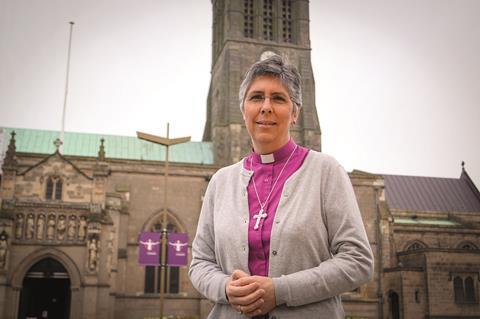
“Housing is an issue of justice, which Jesus cares about intimately.” With these words Justin Welby, the archbishop of Canterbury, announced at an industry conference last month that he was appointing a bishop for housing. The news was greeted with surprise and curiosity, welcomed by some, dismissed as an irrelevance by others. What was the leader of the Anglican Communion doing addressing a housing conference? And what can the third estate achieve where the first and second have so singularly failed?
For those watching more closely, the appointment of Bishop Guli Francis-Dehqani has not come out of the blue but is a response to a report due to be published this weekend (21 February). Coming Home is the fruit of the heavyweight Commission on Housing, Church and Community established by Welby two years ago to examine the housing crisis in all its complexity from theological and practical perspectives. A bishop for housing sitting in the House of Lords is one of its recommendations.
The Church of England has political influence and a moral authority as well as, many would say, a moral duty to speak out – and of course it has done so in various ways over centuries. With a community in every parish, the Church is uniquely connected to the people at the sharp end of the housing crisis. It also owns a huge amount of land.
Building spoke to Bishop Guli about what she hopes to achieve and heard her remarkable story, which drives a passion for justice for the dispossessed. Building also asked housing specialists what they make of her appointment.
Francis-Dehqani, who does not take up her post until mid-April, begins by confessing to limited knowledge. She uses the word “beauty” as someone not yet conversant with its loaded meaning in the style wars but she also talks with enthusiasm about seeing Elemental’s cost-effective Chilean half-houses for the poor on TV. She was patron of a homelessness charity in Leicester and she knows that building flourishing communities, not just units, is the goal.
She also talks about the need to redefine “affordable”. She has already had enthusiastic emails from many quarters including from an architect working in housing at a “huge London practice” offering her help.
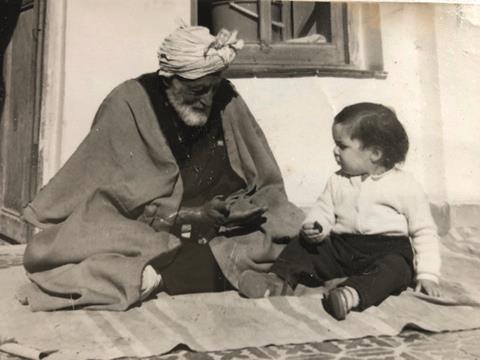
Francis-Dehqani’s personal experiences of housing mostly involve clergy homes, beginning with the Bishop’s House in the historic Iranian city of Isfahan where she was born in 1966. Gulnar Eleanor Dehqani-Tafti spent the first 13 years of her life in this elegant house with its colonnade and pointed windows, part of a compound enclosing a hospital, school, church and centre for blind people.
It was the seat of the Anglican Church in Iran and her father was the bishop, his province covering much of the Middle East. Hassan Dehqani-Tafti was a Muslim convert who married Margaret Thompson, the Persian-born granddaughter of missionaries and daughter of Hassan’s predecessor as bishop. The couple had four children. Guli, the youngest, remembers a hospitable home and a happy if, in her words, unusual childhood before the Iranian Revolution changed everything.
“I grew up between and betwixt these two worlds of Islam and Christianity, eastern and western cultures, English and Persian, which for the most part coexisted peacefully,” she recalls. “It was my normal.”
With the dawn of the late 1970s came rumblings of the Islamic revolution that would overthrow the increasingly unpopular Shah. The bishop wrote to Ayatollah Khomeini pledging support for a just and free Iranian society, but it quickly became apparent that freedom and justice were not on the revolutionaries’ agenda.
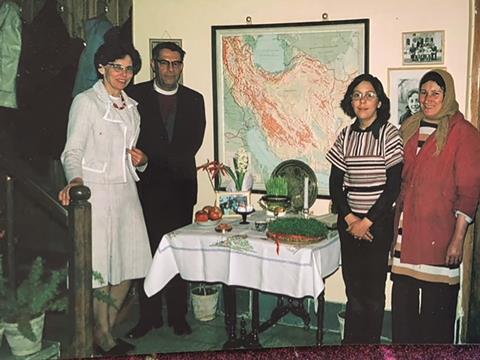
The Church was targeted with murders, the closure of institutions and the confiscation of property. The bishop, as a criminal “apostate”, was the object of particular wrath. He was briefly arrested and the family home was raided twice, the second time in an assassination attempt.
On the night of 26 October 1979, gunmen shot at the bishop and his wife as they lay in bed. Four bullets missed and the fifth hit Margaret’s hand as she flung herself over her husband in an extraordinary act of heroism. The pillowcase with its four bullet holes has become a family heirloom.
After her father left the country a week later to attend a conference, the situation became even graver, with the start of the US hostage crisis. The bishop was advised not to return until things blew over – but the fanatics were undeterred. They seized his house and evicted his wife and children, who left with the few possessions they could fit into a suitcase.
The thread for me is justice rather than experience. For obvious reasons it is an important theme in my life
Bishop Guli Francis-Dehqani
The injustice still stings all these years later, Francis-Dehqani has said. But worse was to come. Seven months later the bishop’s only son, Bahram, was murdered in an ambush as he drove home from work at Tehran University. He was 24.
Francis-Dehqani has become used to sharing her devastating story and the brutal events unfold quite matter-of-factly. “We buried him and then it was quite clear my father couldn’t come back, so my mother, sister and I left thinking we would be back in a few months,” she recalls.
They were reunited at Heathrow with her father, who had written a prayer of forgiveness to be read at the funeral he could not attend. After attempts to find a base closer to Iran failed, they applied for refugee status in the UK.
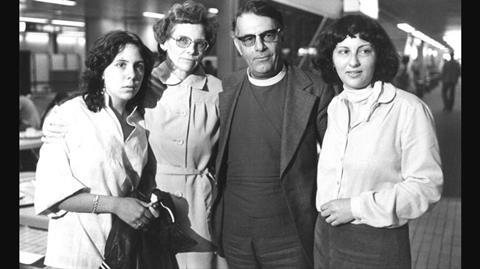
Francis-Dehqani, just 14 at the time, experienced “the most enormous culture shock, especially after a year of living in the chaos of revolution”. As it gradually sank in that they were here to stay, she made a life, reading music at the University of Nottingham and working for the BBC World Service. She met her Northern Irish husband, Lee, at university.
Within a few years both were ordained. In her case she says it was the prompting of friends who could see she was rather lost that led her to the priesthood. Bishophood might have been in her blood but, since women could not be ordained before 1994, it had never felt part of her destiny.
The next few years were devoted to raising three children, studying and doing part-time church work. She was minding her own business in a quiet part of the Peterborough diocese in 2017, she says, “when I had this extraordinary phone call asking me to become the bishop of Loughborough. They were looking for someone with substantial experience of a different cultural background and to our shame there aren’t that many.”
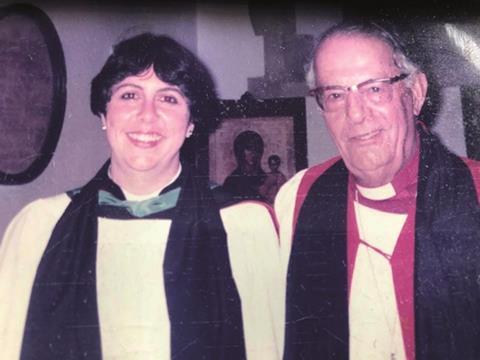
She was the first female bishop from a minority ethnic background. “One side of my brain was saying ‘You’ve got the wrong person; this is completely nuts’,” she smiles. “But the other side thought maybe it did make sense in a strange way. Having someone from this far-flung part of the Anglican Communion, to have the persecuted church brought right into the heart of the establishment is very profound. I feel I represent much more than just who I am.”
She is fascinated by identity and belonging. “I have had to work quite hard to gain a sense of who I am and find my own authentic voice while recognising there’s a richness there,” she says.
And that is where her new role comes in. In December the Church announced that she was being promoted to bishop of Chelmsford, given a seat in the Lords and a large diocese to care for, stretching from the East End of London to the Essex coast. Then Justin Welby added the complex issue of housing to her portfolio.
“The thread for me is justice rather than experience,” she says. “For obvious reasons it is an important theme in my life. My brother’s killers were never brought to justice, and there was much that was unjust in my early experiences. It has given me a great heart for people who suffer injustice in many ways, and the housing issue is fundamentally a matter of justice.”
I am hugely excited to be involved in something that has the potential to change the lives of people who are marginalised
Bishop Guli Francis-Dehqani
She points to health, poverty and race as dimensions the pandemic has brought into sharp focus, as well as the cladding scandal. “I am hugely excited to be involved in something that has the potential to change the lives of people who are marginalised,” she says. “A huge part of my faith is about how we express God’s love for everyone and honour the fact that every individual is made in God’s image.”
She is reluctant to be drawn on her plans, preferring to listen to experts first, including the commissioners whose report she describes as a “remarkable achievement”. She adds: “There’s a real emphasis that what’s needed is a housing strategy that will take 20 or 30 years to unfold.
“There’s no quick fix. My role is, hopefully with a small group of advisers and supporters, to try and ensure the aspirations outlined in the report are acted on. What none of us wants is for this to be just another report that gathers dust. We want to see change and action.”
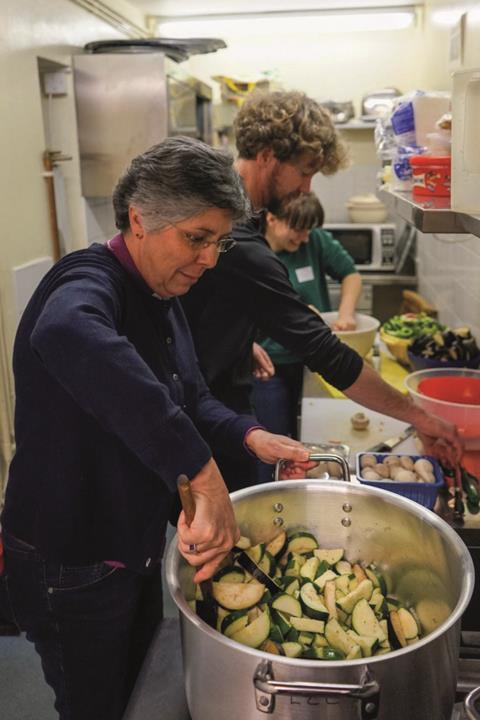
She will be assisted by the bishops of Tewkesbury, Barking and Kensington as they forge relationships with interested parties: local and central government, landowners, developers, landlords, housing associations. “It’s such a complex crisis – and it is a crisis – that, unless we manage to work effectively in partnership, we are not likely to succeed,” she says.
The report comes out on Sunday, but we know that it has three parts: a vision for housing; where we are now; and recommendations. It contains 40 case studies of good practice and will come with a set of resources including a tool to help dioceses to map their land.
Like a good sermon, its five values begin with the same letter. Housing should be sustainable, safe, stable, sociable and satisfying, it says. The authors have mapped these onto the arc of the Christian narrative: creation, fall, incarnation, the gathered church and the garden city in which the story ends.
The thinking is ambitious, says Phil Pawlett Jackson, an architectural designer who co-leads a Christian community housing project in south London and was at the launch of the report’s companion book, a theology of housing. He finds the values rather uninspiring.
“It’s like they said ‘don’t make it unsafe, don’t make it unsustainable’ and worked back,” he says. “It’s born from a tragedy. ‘We don’t want Grenfell’ is a legitimate motivating factor but the end goal, the golden city if you like, needs to be less negatively defined.”
He hopes that the Church will take as its starting point a theology of abundance and lead by radical example. He points to a “long and practical history of churches investing in their patch and being the longest-term stakeholders”. He adds: “It would be fantastic to see compassion mixed with an entrepreneurialism reinvigorated by the report. If this is a catalyst for a pattern book for how to use church land, that would be incredible.”
The founder of enlightened developer Igloo Regeneration, Chris Brown, hopes the report’s influence will extend further still and revive the entire housebuilding industry. “I think it’s really important. It could be a huge shake-up,” he says.
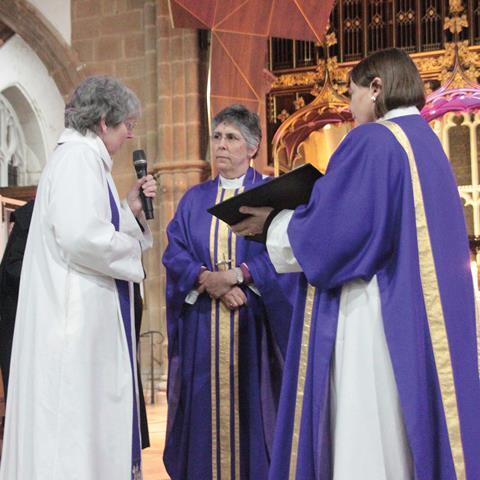
“It serves the industry to suggest the crisis could be solved by building 300,000 new homes a year, but the archbishop of Canterbury is saying that’s not what it’s about – it’s about those people who are really in need. If you redefine the housing crisis that way, you will come to different conclusions about what we need to do.”
Marvin Rees, the mayor of Bristol, has tried to dignify developers by recasting their vision as providing places for people to be hospitable. Brown agrees.
“Housing for profit alone doesn’t make any sense to me,” he says, accusing UK housebuilders of being behind the curve on ESG, the environmental and social goals that investment giants are now demanding.
“I think the archbishop and his commission might come in at a time that will turn out to be a turning point,” says Brown. “It will be interesting to see if the housebuilders resist. A battle between the housebuilding industry and God – now that would be quite something to observe.”
In reality, olive branches rather than brickbats are likely to be offered. The commissioners include Robert Devereux, a very experienced former civil servant, who will have been mindful of the need not to antagonise a powerful lobby. Similarly Francis-Dehqani talks about the need to build cross-party alliances to overcome the short-termism that hobbles progress.
But for now she has a few housing goals of her own. One is moving her family to Chelmsford, to a home none of them has seen. The other, still more of a dream, is to return one day to Iran and show her husband and children the home where she grew up.


























No comments yet